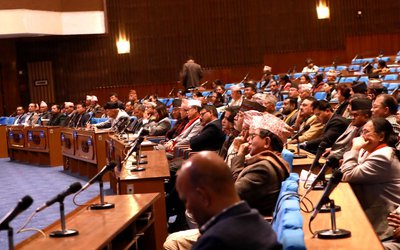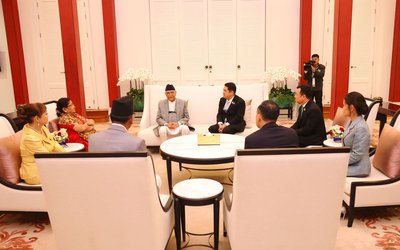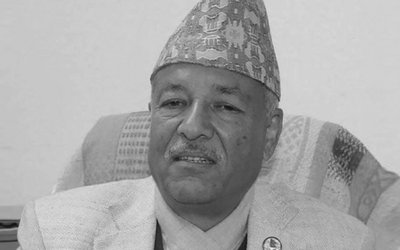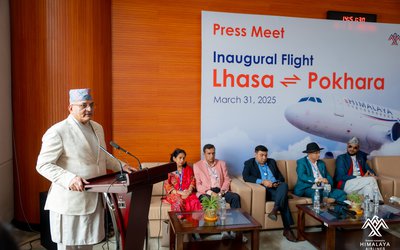
Despite several years of effort, the numbers of women entrepreneurs are yet to increase. How do you look at this?
This is not quite true. First of all, changing the mindset of people takes time. Culture, custom and government policies and legislations, if not improved and implemented properly, can hinder progress. Traditionally, due to the patrilineal nature of our society, women have suffered severely from unequal property rights, lack of access to finance and collaterals, resulting in unwarranted dominance of their male relatives. In spite of all these challenges, I see that women have taken up responsibilities and are playing important roles in all kinds of sectors. I only see progress, and I know that there will be substantially more in the future.
As vice chairperson of SAARC Chamber Women Entrepreneur Council Nepal, what role are you playing to promote women in business?
One of SCWEC’s main aims is to work towards facilitating co-operation and networking among the women of the SAARC region for the socio economic empowerment. Realizing the importance of consolidated effort for synergy and effective advocacy through networking, SAARC Chamber Women Entrepreneurs Council (SCWEC) has been organizing events in Kathmandu, on the occasion International Women’s Day since the year 2009.
What initiatives are you taking?
We are initiating “Made in SAARC” campaign, largely for handicrafts, which will facilitate marketing under one banner throughout the SAARC region. Taking inspiration from the surrounding region and beyond, we are advocating the replication of best business/entrepreneur practices. For example, establishment of ECO Industrial Parks run by women throughout the region.
At a time when business sector is overwhelmingly dominated by males, how do you see yourself as a woman entrepreneur?
Our male counterparts have had a head start. But I assure you that women are now challenging their supremacy. In many ways, women are more suited as entrepreneurs as they have, traditionally, played multiple roles within the society as caretaker, home-maker and, in many cases, the behind-the-scene leader. I believe women are good at negotiations, diplomacy and in creating understanding and co-ordination but, when required, they can be tough as steel. With these qualities, there will come a time when women entrepreneurs will stand on an equal platform as leaders of industry. All we need to do now is educate and train ourselves, nurture inbuilt confidence and reach out to our male counterparts as equal partners.
When numbers of NGOs and trusts have been working in Nepal, what makes Jayanti Memorial Trust (JMT) different than others?
All JMT activities have been possible through generous financial support from Fishtail Lodge Pokhara, which was endowed to JMT from the very beginning by Her Royal Highness the late Princess Helen Shah in the memory of her daughter, Her Royal Highness the late Princess Jayanti Shah.
What are the areas JMT is currently working in and in which parts of the country?
In order to facilitate exchange of knowledge and information in the latest developments in heart related treatments, JMT has been bringing international specialists, enabling our local doctors and experts to interact with them to update technical knowledge and skills in government hospitals. Starting from Kathmandu, and using Pokhara as a base, we hold regular heart camps where patients in the hundreds have the opportunity to consult local and international heart specialists.
As late Jayanti Shaha immensely contributed in various social sectors, what are the priority areas of JMT?
Since the establishment of the trust, we have focused our efforts and resources in achieving four goals:
-To study the specific causes of heart disease in Nepal.
-To research and develop remedies to address the symptoms and complications of heart disease.
-To provide medical facilities for cardiac patients throughout the country by sponsoring the treatment.
-To raise public awareness regarding heart disease.
How do you see the impacts of the projects?
Working closely with Gangalal Heart Centre, Bir Hospital and the Manmohan Cardio-Vascular and Thoracic Centre, JMT has helped over 3,000 patients from extreme low earning bracket across Nepal. Most patients were children. Our awareness campaigns include raising the issue of hypertension and blood pressure as well, especially in the cities and bigger towns of the nation. These, we believe, have had a significant impact as heart diseases strike both the rich and the poor. After all, the health of the country is dependent on the health of its citizens.
- IME GROUP: Expands Into Paper Industry
- Mar 24, 2025
- CPN UML: Instigated By India
- Mar 23, 2025
- ADB’S CHIEF ECONOMIST: Nepal Reduces Poverty
- Mar 11, 2025
- FM DR. DEUBA: A Successful Visit
- Mar 11, 2025
- MD GHISING: Target Of Personal Grudge
- Mar 09, 2025















